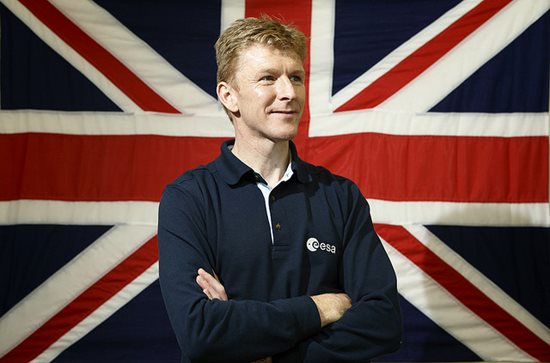Students offered chance to code apps for deployment in space
Leading UK space organisations have joined forces with British ESA astronaut Tim Peake, and Raspberry Pi to offer students the chance to devise and code their own app or experiment to run in space. The competition will be officially opened at the BETT conference, 21st to 24th January, and will be open to all primary and secondary school aged children who are resident in the United Kingdom.
Tim Peake will take two Raspberry Pi computers to the International Space Station as part of his 6 month mission, and both will be connected to an ‘Astro Pi’ board, loaded with a host of sensors and gadgets. Tim plans to deploy the Astro Pi computers in a number of different locations on board the ISS. He will then load up the winning code whilst in orbit, set them running, collect the data generated and download the findings to Earth, where they will be distributed to the winning teams.

To help students on their way in developing their code, five inspirational themes have been devised to stimulate creativity and scientific thinking. The themes are Spacecraft Sensors, Satellite Imaging, Space Measurements, Data Fusion and Space Radiation.
In the primary school age category, teams will be asked to devise and describe an original idea for an experiment or application which can be conducted on the Astro Pi by Tim during his mission. The two best submissions will get the opportunity to work with the Astro Pi team to interpret their ideas and the team at the Raspberry Pi Foundation will then code them ready for flight on the ISS.
In the secondary school age group, the competition will be run across three age categories, one for each of Key Stages 3, 4 and 5 (in England and Wales, and their equivalent ages in Scotland and Northern Ireland). In the first phase, competitors can submit their ideas for experiments and applications. At least the best 50 submissions in each age category will win a Raspberry Pi computer and an Astro Pi board on which to code their idea. In phase 2, all teams will develop code based on their original concept and two winning teams will be selected from each age category.
The winning teams’ code will be readied for flight by the Raspberry Pi Foundation and CGI. As well as having their code uploaded to the ISS, all winning teams will each receive a class set of Raspberry Pi and Astro Pi boards, meet the Astro Pi team and participate in a winners event during Tim’s flight.
In addition to the main prizes, each of the UK space companies supporting the project have offered a prize. These prizes will be awarded to the best submission associated with each of the themes, across the age ranges.
ESERO-UK and Raspberry Pi are developing a comprehensive suite of teaching resources to link to the curriculum and assist teachers of STEM subjects in engaging their students in the competition. As well as explaining how to use and write code for the Astro Pi and its sensors, the resources will provide a context for the Astro Pi in the curriculum and link to teaching subjects and areas. The first two resources of the series are available online at the National STEM Centre eLibrary, with the remainder to follow.
There’s also an Astro Pi competition website, hosting all the information needed as well as a downloadable application form. More content will be loaded to the site as work towards the official opening of the competition in January is completed, and during the subsequent months leading up to Tim’s mission.
Tim commented: “I'm really excited about this project, born out of the co-operation amongst UK industries and institutions. There is huge scope for fun science and useful data gathering using the Astro Pi sensors on board the International Space Station. This competition offers a unique chance for young people to learn core computing skills that will be extremely useful in their future. It's going to be a lot of fun!”





